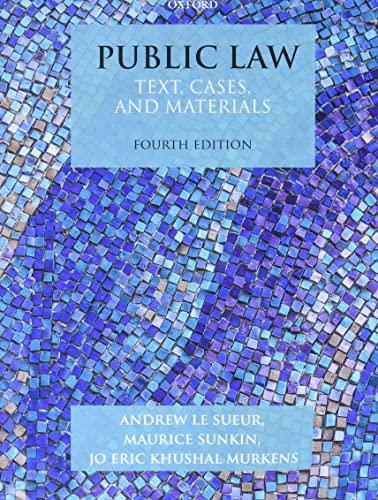Question
On August 17, 1996, Prince George's County (PGC), Maryland, police officers arrested Nelson Robles on an outstanding traffic warrant issued by neighboring Montgomery County. When
On August 17, 1996, Prince George's County (PGC), Maryland, police officers arrested Nelson Robles on an outstanding traffic warrant issued by neighboring Montgomery County. When the officers requested an informal prisoner exchange with the Montgomery County Police Department (MCPD), they were told that the MCPD officers were too busy and that formal procedures (taking him to a commissioner in the county where he was arrested and then transferring him to the sheriff's department in the county issuing the warrant) should be followed. Rather than doing this, the PGC officers drove Robles to a deserted shopping center parking lot in Montgomery County, tied him to a metal pole using three pairs of flex-cuffs, and left a note at his feet saying Robles had outstanding Montgomery County warrants. They then placed an anonymous call to the MCPD reporting the situation, but not reporting that they had tied Robles to the pole. Ten to fifteen minutes later, MCPD officers arrived, untied Robles, and took him into custody. Assuming, as the court did, that Robles' status was that of a pretrial detainee at the time of the incident, did the actions of the PGC officers violate Robles' federal constitutional rights? Did the officers' actions amount to the punishment of Robles in violation of the due process clause of the Fourteenth Amendment? If so, are the officers entitled to qualified immunity for the violation of those rights? Explain your responses as they relate to the Fourth, Eighth, Fourteenth Amendments, the de minimis aspect, and qualified immunity. This case was reported as Robles v. Prince George's County, Maryland, 308 F.3d 437 (4th Cir. 2002).
Step by Step Solution
There are 3 Steps involved in it
Step: 1

Get Instant Access to Expert-Tailored Solutions
See step-by-step solutions with expert insights and AI powered tools for academic success
Step: 2

Step: 3

Ace Your Homework with AI
Get the answers you need in no time with our AI-driven, step-by-step assistance
Get Started


